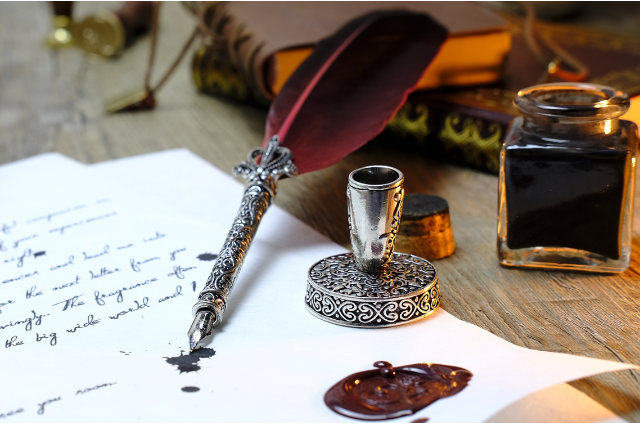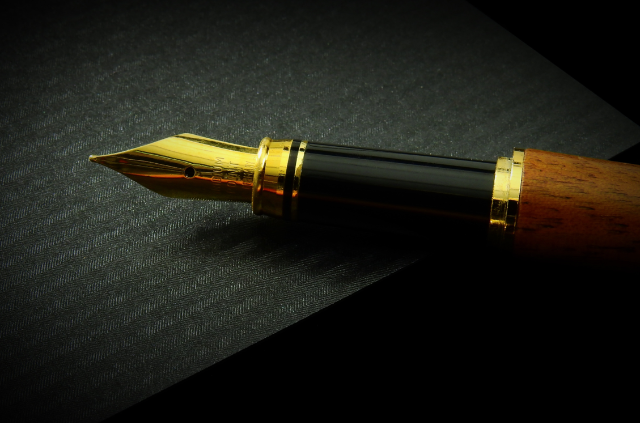
Image by Bru-nO/Germany from Pixabay
Poetry - Introduction
Poetry is a beautiful literary art form which is relief for the heart, thought-provocation for the mind and life for the soul. It uses aesthetic and rhythmic qualities to express thoughts, emotions, knowledge and experiences. The term poetry is derived from the Greek word, poiesis which means “making”. It is an expression of feelings beautifully tied with words that are described attractively to make a memorable imagery experience. It is not limited to a specific audience as perceived mostly, rather, it is for everyone, everywhere.
Impact of Poetry
Poetry has the ability to make you smile when you are low and make you cry even when you laugh. It gives you a different perspective in exceptional ways which are never thought of earlier. To become a listener is easy, but to become a poet is a tough task. A person becomes a poet when they have experiences or sentiments which not everybody has and they write poetry when they want the world to be connected and soulful to what they express through poetry. A poet collects millions of thoughts into few words and composes a poem which creates a wonderful imagery in the heart and minds of the readers. Poetry has the power as well as the sensitivity to make a huge impact and valuable contribution to the world. Poetry can change thoughts, attitudes, views, beliefs and systems. The Epic of Gilgamesh, Pyramid Texts, Odyssey and Iliad are amongst the earliest forms of poetry.

Poets and Their Role in Poetry
There have been poets who brought revolutionary changes to the world and they changed our views and perceptions by writing influencing poetry like showing true mirror of the reality. There have been some wonderful poets who beautifully described nature, surroundings and the world like a canvas. There have been some exceptional poets who created new ways of writing poetry. There have been poets who gave smile, knowledge and life to the readers. Thus, different poets chose different paths but they lead the world towards developments, improvements, growth and massive changes. Some of the famous poets of the world are Homer, Sappho, William Shakespeare, John Keats, Emily Dickinson, Robert Frost, T.S. Eliot, Sylvia Plath, William Butler Yeats, Rabindranath Tagore and so on.
Elements of Poetry
There are various elements of poetry which are as follows-
1) Meter:
A meter is a pattern used in a verse. Some metrical feet are-
- Iamb - a metrical foot consists of two syllables - one unstressed syllable followed by one stressed syllable.
- Trochee - a metrical foot consists of two syllables - one stressed syllable followed by one unstressed syllable.
- Dactyl - a metrical foot consists of three syllables - one stressed syllable followed by two unstressed syllables.
- Anapest - a metrical foot consists of three syllables – first two unstressed syllables followed by one stressed syllable.
- Spondee - a metrical foot consists of two stressed syllables.
- Pyrrhic - a metrical foot consists of two unstressed syllables.
Using these meters, a metrical pattern is created in the poem -
- Iambic Pentameter - occurs when a line of a poem contains five iambs.
- Trochaic Tetrameter - occurs when a line of a poem contains four trochees.
- Trochaic Octameter - occurs when a line of a poem contains eight trochees.
2) Rhyme Scheme:
Rhyme is the pattern of sound at the end of a verse.
3) Stanza:
Stanza is a group of lines that form a unit within a poem.

Image by Bru-nO/Germany from Pixabay
Types of Poetry
Poetry has multiple flavors for varied tastes of different people across the world. Poetry is not limited to a few types but has extensive variety catering to all types of readers. Some types of poetry with their overview are as follows-
- Acrostic – Acrostic is a poem in which the first letter of the first word of every line together becomes the title of the poem. Sometimes, the last letter of every line or letter at specific place of every line collectively makes the title of the poem or a word or a phrase. The rhyming of the poem is not mandatory to be added in the poem.
- Limerick – Limerick is a short and humorous poem which has a total of five lines. The first, second and fifth lines have seven to ten syllables whereas the third and fourth lines have five to seven syllables. The rhyme scheme of a limerick poem is aabba.
- Ballade – Ballade is a French poem which has a total of four stanzas. There are eight lines in the first three stanzas and four lines in the last one stanza. The last stanza is called envoi. The interesting part about this type of poem is that the last line of all the four stanzas is the same and it is called a refrain line. The rhyme scheme of the first three stanzas is ababbcbC and the fourth stanza is bcbC.
- Terza Rima – Terza Rima is a poem which has three lines in each stanza. These three lines are together called terza. The unique part about this type of poem is that the rhyme scheme of the last word of the second line of a tercet provides the rhyme scheme of the first as well as the third lines of the next tercet. It originated from Italy. This poem has the rhyme scheme of aba, bcb, cdc and so on which is an interlocking three lines rhyme scheme.
- Haiku – Haiku is a short poem which follows 5-7-5 rule. It is originally from Japan and has only three lines. The first line has five syllables, the second line has seven syllables and the third line has five syllables. Thus, a haiku poem has a total of seventeen lines. The rhyming is not necessary in a haiku poem.
- Shaped Poem – Shaped poem is a poem which is written inside a shape which it describes.
- Sonnet – Sonnet poem is a poem which has fourteen lines in it and it follows strict rhyme scheme and structure. The term sonnet is derived from Italy which means “little song”.
Future of Poetry
Poetry has a strong and successful future as the world needs something to relate to, connect with and which can help to bring progressive changes. There is something for everyone to know, admire, follow, support or adopt through poetry. Poetry’s contributions to the world are immense and it continues to be an integral part of everyone’s life.
